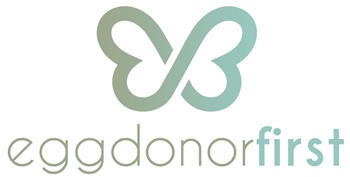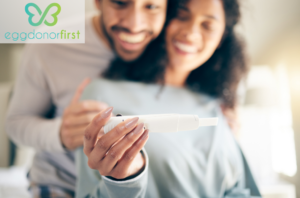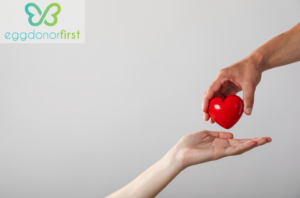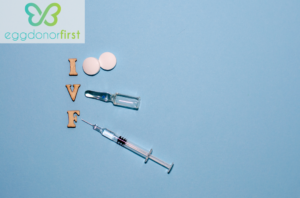If you’re thinking about becoming an egg donor—or you’re just curious about the process—you’re not alone.
At EggDonorFirst, we talk to women every day who have big hearts and big questions. And that’s a good thing! Egg donation is a generous and life-changing experience, and it’s important to understand what’s involved before you take the next step.
We’ve rounded up some of the most common questions we hear from potential egg donors.
What exactly is egg donation?
Egg donation is when a healthy woman donates her eggs to help someone else have a baby. These eggs are retrieved through a simple medical procedure and then fertilized in a lab as part of IVF (in vitro fertilization). The intended parents then carry the embryo themselves or with the help of a surrogate.
Is egg donation safe?
Yes, egg donation is generally considered safe for healthy women. The process involves fertility medications to stimulate the ovaries, followed by a short outpatient procedure to retrieve the eggs. You’ll be closely monitored by medical professionals every step of the way. Most donors return to their normal routine within a day or two.
Will I be compensated?
Yes! At EggDonorFirst, our donors receive generous compensation for their time, effort, and commitment. Compensation varies depending on your location, experience, and other factors, but it typically ranges from $10 ,000 to $15,000+ per cycle.
What are the requirements to become an egg donor?
While each clinic may have slightly different criteria, most egg donors must meet the following:
- Be between the ages of 21 –30
- Have a healthy BMI (below 27.5)
- Be a non-smoker and drug-free
- Have regular menstrual cycles
- Be willing to undergo medical and psychological screening
If you’re unsure if you qualify, don’t worry—our team is happy to walk you through it.
Will I still be able to have children later in life?
Yes, donating eggs does not affect your future fertility. Each month, your body naturally releases multiple eggs, and only one matures. Fertility medication helps your body mature more of those eggs at once—eggs that would have otherwise been discarded.
Can I donate more than once?
Absolutely. Many donors choose to donate more than once, as long as they continue to meet medical and psychological screening requirements. Most agencies and clinics follow the American Society for Reproductive Medicine’s guideline of a maximum of six donation cycles.
How long does the process take?
From matching with a family to completing the retrieval, the process can take anywhere from 4 to 6 months. The actual medication cycle is around 10 to 14 days, and you’ll need to attend a few appointments during that time for monitoring.
Why do people need egg donors?
People turn to egg donation for many reasons: fertility issues, medical conditions, same-sex couples, or single parents looking to grow their family. Your donation could be the missing piece in someone’s journey to parenthood—and that’s a beautiful thing.
Ready to Take the Next Step?
Becoming an egg donor is more than just a medical process—it’s an act of generosity, compassion, and empowerment. At EggDonorFirst, we make sure you feel supported, informed, and valued every step of the way.
Apply Now to Become an Egg Donor
Or reach out to our team with your questions—we’re here to help!
#EggDonorFirst #EggDonationJourney #BeAnEggDonor #FertilityAwareness #WomenHelpingWomen #GiveTheGiftOfLife #InfertilitySupport #DonorSisters #EggDonorFAQs #ModernFertility





